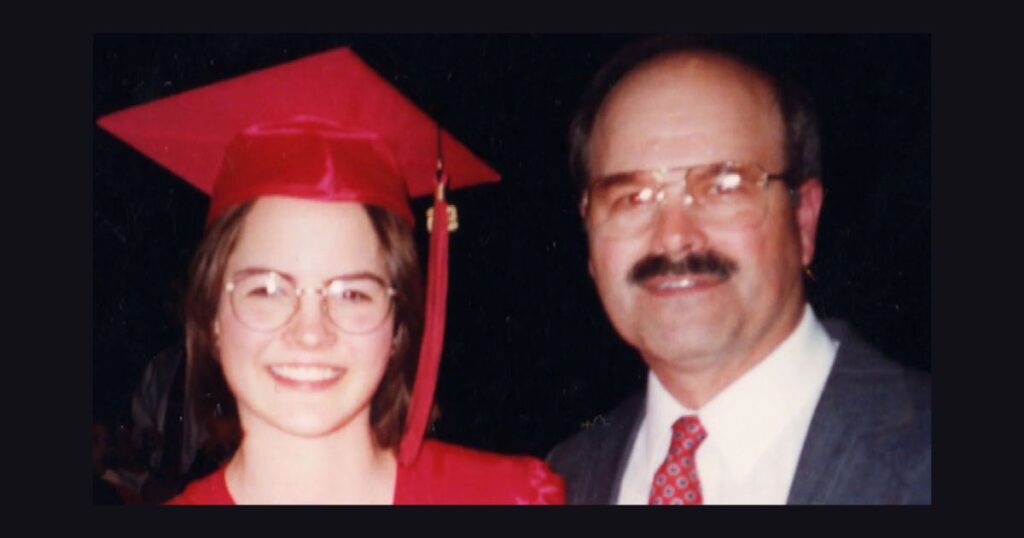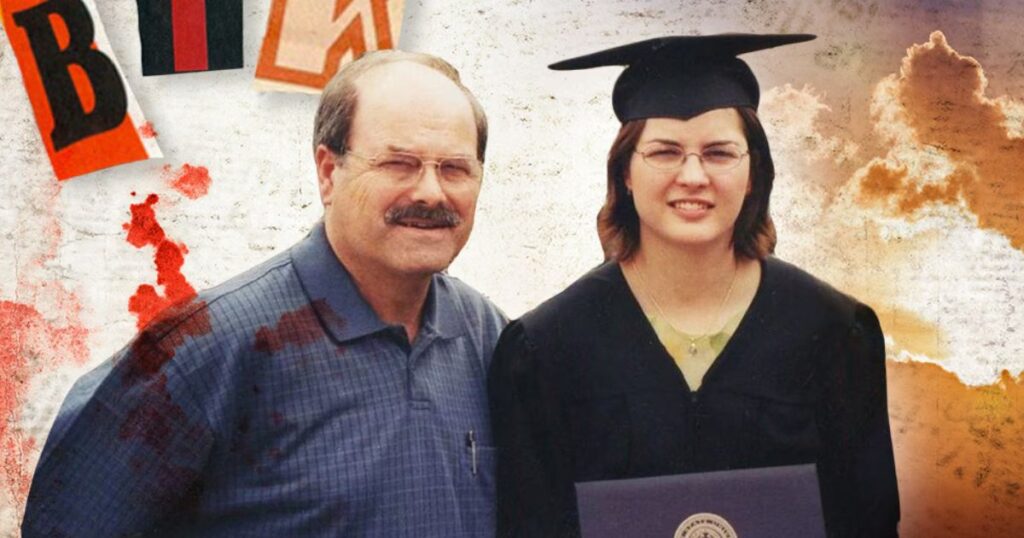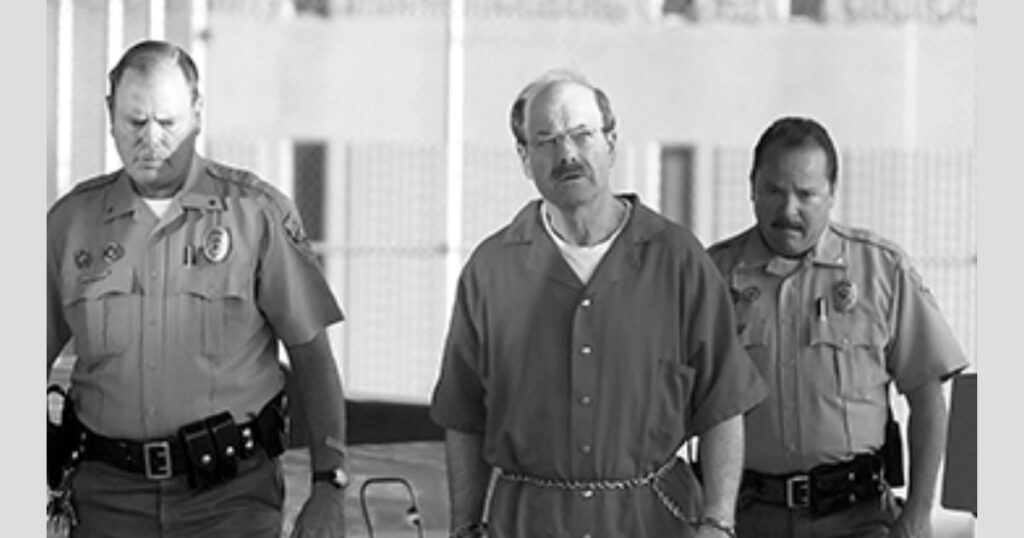Living in the shadow of a serial killer father isn’t something anyone can prepare for. Brian Rader’s story exemplifies how one family’s life changed forever when they discovered their patriarch, Dennis Rader, was the infamous BTK Killer of Wichita, Kansas. This comprehensive look explores Brian’s life, his family’s journey, and their struggle to rebuild after the devastating revelation.
The Shocking Discovery
The Rader family’s world imploded in February 2005 when Dennis Rader was arrested and revealed to be the BTK Killer. For Brian Rader, then serving in the Navy submarines at a Connecticut base, the news devastated his understanding of his childhood and family life. Like his sister and mother, he had no inkling of his father’s dark double life that had terrorized Wichita for decades.
Brian Rader’s Early Life and Background
Born in 1975 in Wichita, Kansas, Brian Rader grew up in what appeared to be a typical American household. His father worked at ADT Security Services, installing home security systems – an ironic occupation given his secret criminal activities. Brian excelled academically and earned recognition as an Eagle Scout, demonstrating his commitment to service and community values that stood in stark contrast to his father’s hidden nature.
Brian Rader’s Father – The Famous BTK Killer
Dennis Rader led an outwardly respectable life while concealing his identity as the BTK Killer. From 1974 to 1991, he terrorized Wichita, claiming ten known victims through his signature method of Bind, Torture, Kill. Despite earning a degree in Administration of Justice from Wichita State University and serving as a compliance officer in Park City, Dennis Rader maintained his deadly secret life until his 2005 arrest.
The Mother’s Strength – Paula Dietz
Paula Dietz, Brian’s mother, demonstrated remarkable resilience following the revelation of her husband’s crimes. After obtaining an emergency divorce in 2005, she focused on protecting her children and rebuilding their lives. Court investigations and extensive police interviews confirmed that Paula had no knowledge of her husband’s activities, supporting the family’s claims of complete shock at the discovery.
Kerri Rawson – Breaking the Family’s Silence

While Brian chose privacy, his sister Kerri Rawson became the family’s public voice. Through her books “A Serial Killer’s Daughter: My Story of Faith, Love and Overcoming” and “Breaking Free: Overcoming the Trauma of My Serial Killer Father,” she provided insight into their family’s journey. Her accounts help contextualize Brian’s choice to remain private while processing their shared trauma.
Life in the Military and Beyond
Brian’s military service in the Navy submarines offered structure during the tumultuous period of his father’s arrest and trial. His commitment to service suggests a deliberate choice to build a life defined by duty rather than his father’s infamy. After his military discharge, he pursued further education, though details remain private at his request.
The Impact of BTK’s Legacy
The revelation of Dennis Rader as the BTK Killer created ripple effects throughout the Rader family. Unlike Kevin Bright, who survived a direct encounter with BTK, Brian and his family faced a different kind of survival – rebuilding their identities and understanding of their past while processing their connection to heinous crimes.
Privacy as Protection
Brian’s choice to maintain privacy reflects a conscious decision to protect his mental health and personal life from the intense public interest in true crime and the BTK case. Unlike the media attention surrounding Dennis Rader’s crimes and Kerri’s public advocacy, Brian’s silence speaks to the different ways trauma survivors process their experiences.
The Psychological Impact on BTK’s Family
Living with the revelation that your father is a notorious serial killer creates deep psychological wounds. Mental health professionals who specialize in trauma note that children of violent criminals often face unique challenges. For Brian and his family, the discovery forced them to question every childhood memory and family interaction.
The Media’s Role and Public Interest

The intense media coverage following Dennis Rader’s arrest complicated the family’s healing process. While news outlets focused on the sensational aspects of the BTK cases, Brian’s choice to avoid public attention helped shield him from potentially harmful exposure. This decision stands in stark contrast to the modern true crime entertainment industry’s appetite for personal details.
Supporting Victims’ Families
The Rader family’s experience highlights the need for support systems for criminals’ family members. Organizations specializing in trauma support note that these “secondary victims” often face social stigma and emotional challenges without adequate resources. Brian’s story underscores the importance of privacy and professional help in these situations.
The Military Connection
Brian’s service in the Navy submarines provided more than just career structure. Military service often offers a sense of purpose and community, particularly valuable during personal crises. His commitment to serving his country demonstrates his dedication to positive societal contribution, directly opposing his father’s destructive legacy.
Understanding Generational Impact
Mental health researchers studying families of convicted criminals note that children often struggle with questions of inherited traits. For Brian and Kerri, their father’s crimes raised difficult questions about nature versus nurture. Their different coping mechanisms – Kerri’s public advocacy and Brian’s privacy – show various ways of processing such concerns.
Learning from the Past
The BTK case offers important lessons about recognizing signs of criminal behavior. While Dennis Rader successfully hid his crimes from his family, his eventual capture demonstrates that justice can prevail. The Rader children’s experiences contribute to our understanding of how families cope with such devastating discoveries.
Breaking the Cycle
Both Brian and Kerri have actively chosen paths that counter their father’s legacy. Through military service, education, and personal choices, they demonstrate that children aren’t destined to repeat their parents’ mistakes. Their stories offer hope to others facing similar family trauma.
The Role of Community Support
The Wichita community’s response to the Rader family situation varied. While some offered support and understanding, others’ curiosity and judgment complicated their healing process. This dynamic influenced Brian’s decision to maintain privacy and build a life away from public scrutiny.
Moving Forward
Today, Brian Rader continues to maintain his privacy, a choice that mental health experts recognize as potentially beneficial for trauma survivors. His story, though largely untold by his own choice, represents the complex impact of discovering a parent’s hidden criminal life and the various ways family members cope with such revelations.
The Broader Impact

The Rader family’s experience highlights important questions about the impact of criminal actions on innocent family members. Their story has contributed to broader discussions about supporting families of convicted criminals and understanding intergenerational trauma in true crime cases.
Read more:
Bert Girigorie: Everything About Wendy Williams First Husband
Unsellable Houses Twins Net Worth: HGTV Stars’ Success Story
Conclusion
Brian Rader’s life changed forever in 2005 when his father, Dennis Rader, was unmasked as the BTK Killer of Wichita. As an Eagle Scout and Navy serviceman, Brian chose a path of honor that stood opposite to his father’s dark legacy. While his sister Kerri wrote books about their experience, Brian maintained his privacy, showing there’s no single way to heal from family trauma.
Today, he continues to live away from the spotlight, proving that a parent’s crimes don’t define their children’s future. His story reminds us that behind every shocking headline are real people dealing with unimaginable challenges.

Hello, I’m Amelia Eva a dynamic author at TrendOxygen.com, specializing in Tech, Lifestyle, Business, Entertainment, and Sports. Passionate about uncovering the latest trends, my articles offer a broad range of topics, delivering insightful and captivating content for readers.
With an exceptional ability to simplify complex concepts, I make my writing approachable for everyone. Follow me on TrendOxygen.com for fresh insights and the latest updates on what’s trending in the world of technology, lifestyle, and beyond.


